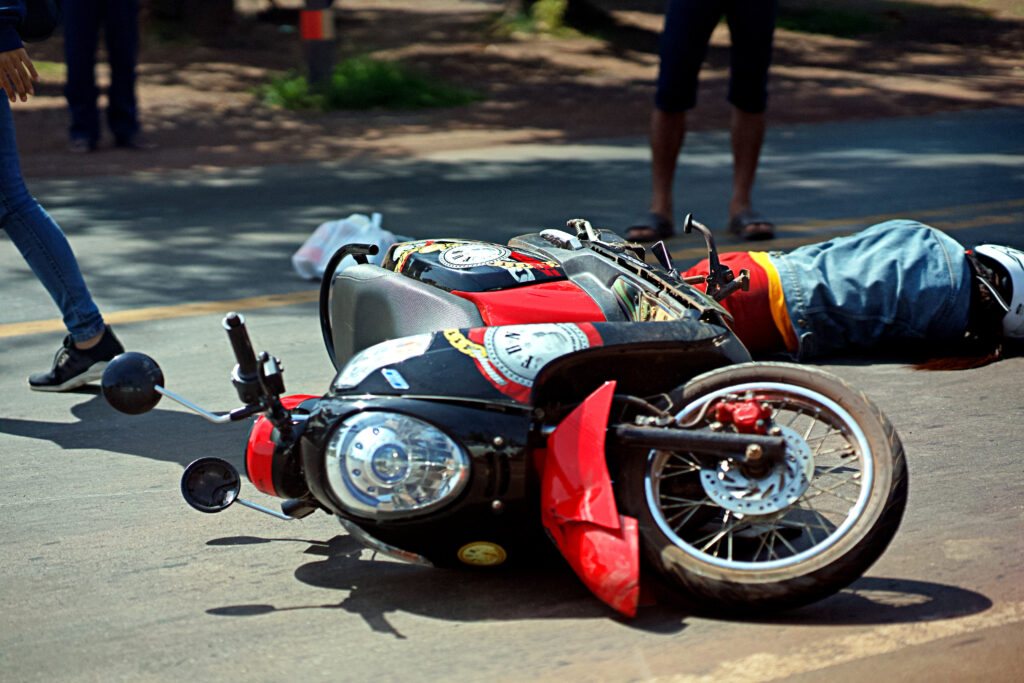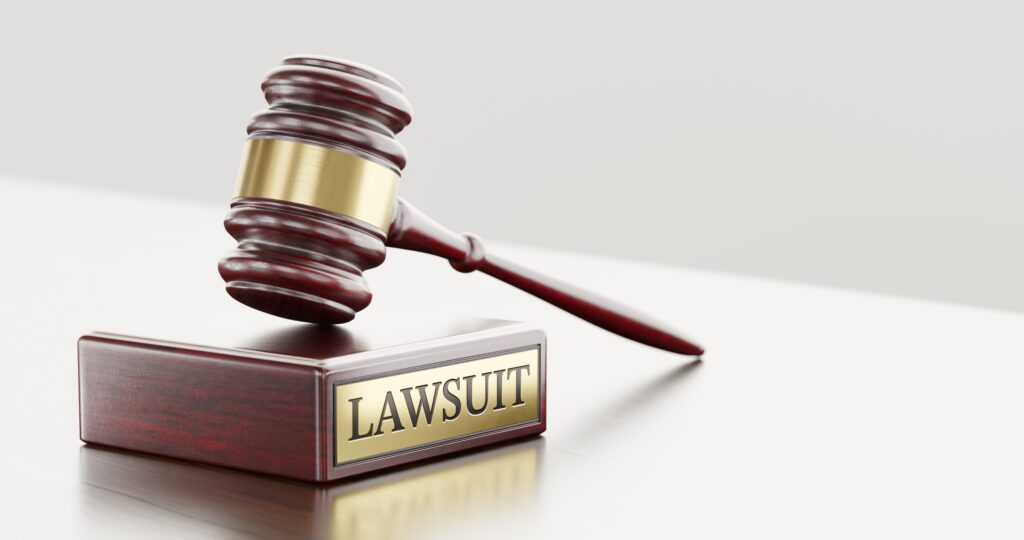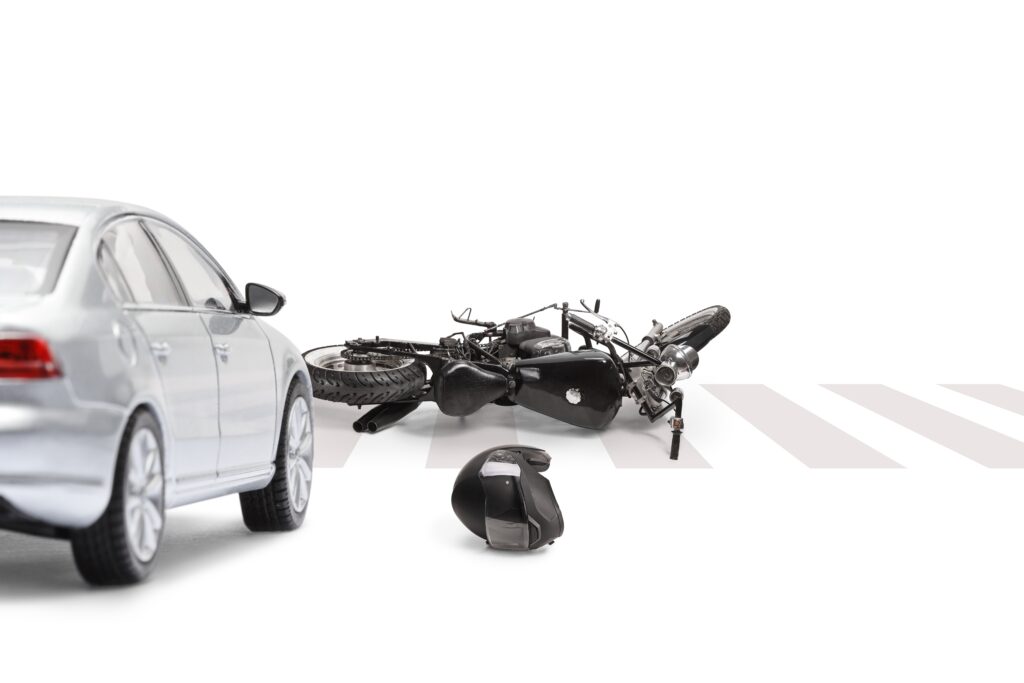Motorcycle accidents frequently happen when other people drive in a careless, reckless, or distracted manner. When motorcyclists suffer injuries in an accident, they can file a claim with the at-fault driver’s insurance company. However, insurance companies frequently try to undervalue these claims and offer as little money as possible to injured accident victims. If the insurance company denies the claim or significantly undervalues it, the injured cyclist may need to file a lawsuit in the state court system. Taking this step begins the litigation process.
The amount of time it takes to resolve a motorcycle accident lawsuit will depend on several factors, including the length of the accident victim’s medical treatment, the insurance company with whom they are dealing, the willingness of the insurance company to settle, and the jurisdiction where the case is pending. A skilled motorcycle accident attorney in Chula Vista will work hard to streamline your case, expedite the process, and obtain the maximum compensation available for your losses.
Schedule A Free Case Evaluation Today!
Common Types of Motorcycle Accidents and Injuries
Motorcycle crashes are often severe, particularly when they involve the negligence of other drivers.
- One common type of motorcycle crash occurs during lane changes or merges. Other drivers sometimes fail to see motorcycles in their blind spots. This can lead to drivers sideswiping or colliding with motorcyclists, causing significant injuries.

- Another common scenario is the left-turn accident. When a driver makes a left turn in front of an oncoming motorcycle, it can result in a catastrophic collision. This is especially dangerous because motorcycles are less visible than larger vehicles, and drivers may underestimate their speed.
- Single-vehicle crashes, where a motorcycle operator loses control, can also result from negligent drivers. For instance, if a car abruptly stops or swerves into a motorcycle’s path, the rider may be forced to react quickly, leading to loss of control. Road hazards like potholes or debris can further complicate these situations, increasing the likelihood of accidents.
- In terms of injuries, the consequences of these accidents can be dire. Motorcyclists often suffer from traumatic brain injuries (TBIs), which can occur even with helmets due to the force of a crash. Concussions, skull fractures, and other head injuries are common outcomes. Additionally, spinal injuries, including paralysis, can result from severe impacts or falls.
Lower extremity injuries are also prevalent in motorcycle crashes. Riders often sustain fractures or severe soft tissue injuries to their legs and feet, primarily because they are more exposed than occupants of a car. Pelvic injuries are another concern, as the rider’s body may absorb much of the impact in a collision.
Beyond physical injuries, emotional and psychological trauma can linger long after the physical wounds have healed. Survivors may experience anxiety, depression, or post-traumatic stress disorder (PTSD) due to their experiences on the road.
Proving the Legal Elements of a Motorcycle Accident Lawsuit
Proving the legal elements of a motorcycle accident lawsuit requires a clear understanding of negligence and how it applies to the case. To succeed, the injured motorcyclist (i.e., the plaintiff) must establish four key elements: duty, breach, causation, and damages.
- First, the plaintiff must demonstrate that the other driver had a legal duty to exercise reasonable care while operating their vehicle. All drivers owe this duty to others on the road. Consequently, they must follow all traffic laws and act in a manner that does not endanger others. Obeying posted speed limits, using turn signals, and checking blind spots are all part of this duty.
- Next, the plaintiff must show that the other driver breached this duty. A breach occurs when the driver fails to act as a reasonable person would act in similar circumstances. This may include texting while driving, speeding, or failing to yield. Evidence such as eyewitness testimony, traffic camera footage, or police reports can establish that the other driver acted negligently.
- Causation is the third element that must be proven. The plaintiff must demonstrate a direct link between the other driver’s breach of duty and the motorcycle accident. This involves showing that the accident would not have occurred if the driver had acted responsibly. For instance, if the driver ran a red light and collided with the motorcyclist, it must be clear that this action directly caused the crash.
- Finally, the plaintiff must provide evidence of damages resulting from the accident. Damages include medical expenses, lost income, property damage, and pain and suffering. Medical records, bills, and expert testimony can help quantify these damages and establish their effect on the plaintiff’s life.
Each of these elements plays a critical role in seeking fair compensation for the injuries sustained in a motorcycle crash.
In many cases, gathering sufficient evidence is important to proving these elements. This can include obtaining police reports, collecting witness statements, and preserving any available video footage. Additionally, consulting with experts, such as accident reconstruction specialists or medical professionals, can strengthen the case.
When is Litigation Necessary in a Motorcycle Accident Case?

Litigation in a motorcycle accident case becomes necessary when a fair settlement cannot be reached through negotiation with the at-fault party’s insurance company or their attorney. Understanding when to pursue litigation is important for ensuring that victims receive the compensation they deserve for their motorcycle accident losses.
- One common scenario that prompts litigation is when the insurance company offers a settlement that is significantly lower than the actual costs that the injured motorcyclist incurred. Motorcycle crashes often result in substantial medical expenses, lost income, and long-term rehabilitation costs. If the insurance adjuster dismisses these expenses or downplays the severity of the injuries, litigation may be the only way to achieve a fair outcome.
- Additionally, litigation is often required when liability is disputed. If the at-fault party denies responsibility or if multiple other parties share the blame, reaching a settlement can be complicated. The legal process allows for a formal examination of the facts and evidence, helping to clarify who is at fault and ensuring that victims receive the compensation they deserve for their losses.
- A lawyer plays a vital role in the litigation process. First, they help gather and organize evidence to build a strong case. This includes collecting police reports, medical records, and witness statements, all vital in establishing negligence and the extent of damages. A personal injury lawyer can also hire experts, such as accident reconstruction specialists, to provide testimony that supports the accident victim’s claims.
Moreover, a lawyer can effectively navigate complex legal procedures for the accident victim. Litigation involves filing a complaint, adhering to court rules, and meeting deadlines, all of these things can be overwhelming for someone without legal experience. A skilled attorney ensures that all necessary paperwork is filed correctly and on time, minimizing the risk of delays or dismissals.
During the litigation process, a motorcycle accident lawyer will also represent the injured party in negotiations and court proceedings. They can advocate for the victim’s best interests, presenting evidence and arguing for appropriate compensation. If the case goes to trial, the lawyer will prepare for court, including jury selection, presenting evidence, and making closing arguments.
Finally, having a lawyer can provide peace of mind during a challenging time. The legal process can be stressful and lengthy, but a knowledgeable motorcycle accident attorney can manage the details, allowing the victim to focus on their medical recovery.
Factors that Determine the Length of a Motorcycle Accident Lawsuit
The length of a motorcycle accident lawsuit can vary significantly based on several important factors. Understanding these factors can help injured parties anticipate the timeline of their case and make informed decisions.
- Complexity of the Case – The complexity of the case is one of the primary determinants of how long a motorcycle accident lawsuit will take. Cases that involve multiple parties, complicated liability issues, or significant injuries typically require more time to resolve. If there are disputes about who is at fault or if several insurance companies are involved, the litigation process can become protracted.
- Severity of Injuries – The extent of the injuries sustained in a motorcycle accident also plays a major role. When injuries are severe and require long-term medical treatment, it can take time to fully understand the effect on the victim’s life. Medical professionals may need to provide ongoing evaluations, and it’s often best to wait until the victim has completed their medical treatment before settling. This ensures that all damages are accurately assessed.
- Evidence Gathering – The process of collecting evidence can significantly affect the duration of a lawsuit. Gathering police reports, medical records, witness statements, and other key documentation is essential for building a strong case. Delays in obtaining these records can prolong the lawsuit. If expert witnesses are needed, such as accident reconstruction specialists or medical professionals, coordinating their involvement can add more time to the process.
- Settlement Negotiations with Insurance Companies – Before a lawsuit goes to trial, parties often engage in settlement negotiations with insurance companies. The willingness of the insurance company to negotiate fairly can affect the timeline. If the insurer is reluctant to offer a reasonable settlement, the case may require further legal action, extending the duration of the lawsuit.
- Court Schedules – The court’s schedule can also influence how long a motorcycle accident case takes. Courts have limited availability, and delays can occur due to crowded dockets. Some cases may be postponed, and this can add months or even years to the process.
- Jurisdiction – The specific jurisdiction where the lawsuit is filed can affect timelines as well. Different states have varying laws, procedures, and timelines for personal injury cases, affecting how quickly a case can progress through the legal system.
Recoverable Damages in a Motorcycle Accident Lawsuit
In a motorcycle accident lawsuit, victims can seek various types of recoverable damages to compensate for their losses. These damages generally fall into three main categories: economic damages, non-economic damages, and punitive damages.

- Economic Damages – Economic damages refer to the tangible financial losses incurred as a result of the motorcycle crash. These damages are typically quantifiable and can include:
- Medical Expenses – This includes costs for hospital stays, surgeries, rehabilitation, medications, and any future medical care required due to the injuries sustained in the motorcycle accident.
- Lost Income – If the victim cannot work because of their injuries, they can pursue a lost earnings claim. This can also extend to future lost earnings if the injuries affect their long-term ability to work.
- Property Damage – Compensation for damage to the motorcycle and any personal property involved in the accident is also recoverable. This includes repair or replacement costs.
- Non-economic Damages – Unlike economic damages, non-economic damages are more subjective and relate to the non-financial effects of the accident. They can include:
- Pain and Suffering – This refers to the physical pain and emotional distress the injured motorcyclist suffered. Courts often consider the severity and duration of the pain when determining compensation.
- Emotional Distress – Motorcycle accident victims may experience anxiety, depression, or PTSD following their accident. Compensation for these emotional hardships can be pursued as part of non-economic damages.
- Loss of Life Enjoyment – If the motorcycle accident affects the victim’s ability to participate in hobbies, activities, or relationships they once enjoyed, they may claim damages for this loss.
- Punitive Damages – Punitive damages are intended to punish the at-fault party for particularly reckless or negligent behavior and to deter similar conduct in the future. Unlike economic and non-economic damages, punitive damages are not tied to the victim’s actual losses. Rather, they are awarded in cases where the at-fault party’s actions are found to be egregiously harmful, such as driving under the influence of alcohol or engaging in road rage. To receive punitive damages, the injured motorcyclist must typically demonstrate that the at-fault party acted with malice or gross negligence. The amount awarded varies widely based on the specifics of the case and jurisdiction.
Speak with an Experienced Motorcycle Accident Lawyer in Your Area Today
When you have suffered injuries in a motorcycle crash, it’s always important to consult with a knowledgeable personal injury attorney in Chula Vista in your jurisdiction right away. Your lawyer will do everything possible to expedite the litigation process and resolve your case as quickly, efficiently, and favorably as possible.

